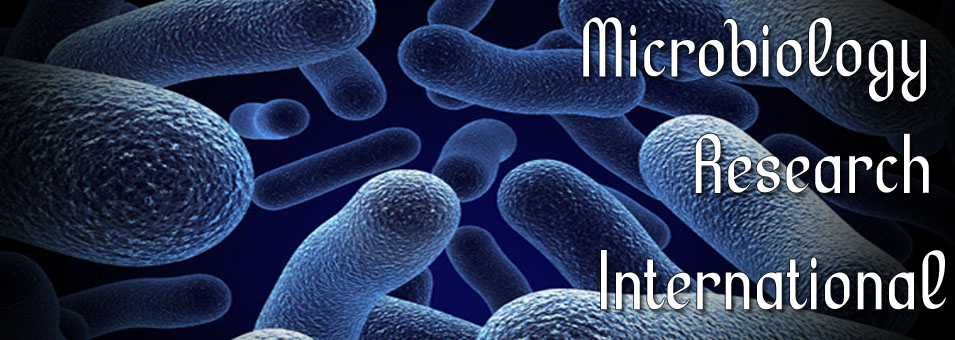Methicillin-resistant Staphylococcus aureus (MRSA) isolated from medical students of a Brazilian educational institute
Liliane Braga Medeiros, Carolina Yumi Gushiken, Bruna Pereira Correia, Luciana Machado Guaberto, Daniela Vanessa Moris, Valeria Cataneli Pereira and Marcus Vinicius Pimenta RodriguesMicrobiology Research International
Published: March 2 2015
Volume 3, Issue 1
Pages 14-19
Abstract
Staphylococcus aureus is a bacterium that can cause a variety of infections. The great transmissibility, its high pathogenic potential and the possibility of resistance to multiple antimicrobial agents, are relevant items that contribute to the staphylococcal infections. The present work aims to document the spread of isolates and to identify the phenotypic and genotypic factors of resistance evaluate the resistance of these strains of S. aureus isolated from nasal mucosa of medical students of an Educational Institution in the State of São Paulo, Brazil. Samples were collected from nasal fossae of fresh students of medicine using sterile swabs were submitted for the identification of S. aureus. Phenotypic resistance profile was performed with the technique of disk diffusion method and the genotipical detection of methicillin resistance was performed by the PCR technique to evaluating the presence of mecA gene. 222 nasal swab samples of fresh students of medicine were collected, 43 (21.1%) were colonized by S. aureus. Out of 43 colonizing strains of S. aureus, 86% were resistant to erythromycin, 18.6% to clindamycin and 18.6% to cefoxitin. It was observed that 11 samples showed the D test positive and 8 were MRSA positive. These results demonstrate that the fresh students are already colonized with S. aureus, and the monitoring of these reservoirs is important to control the dissemination of these isolates in the hospital environment.
Keywords: Evaluation, Staphylococcus aureus, resistance, colonization, medical students.
Full Text PDF
